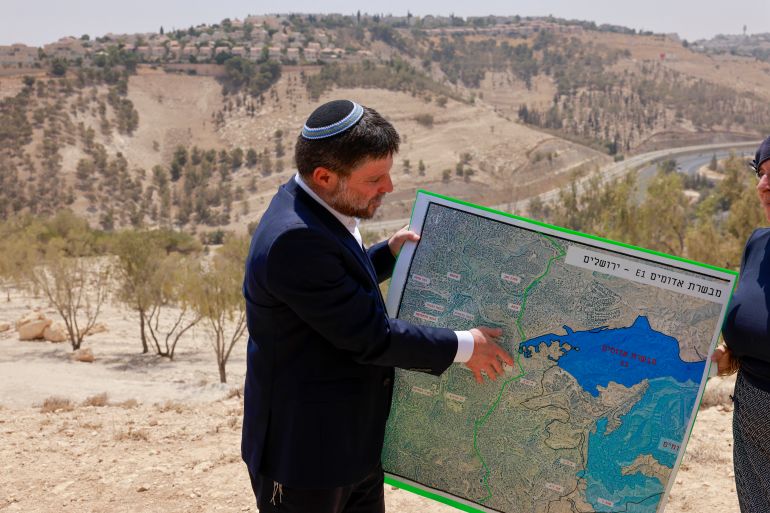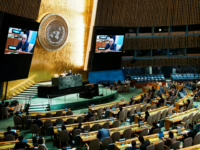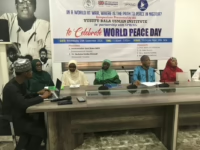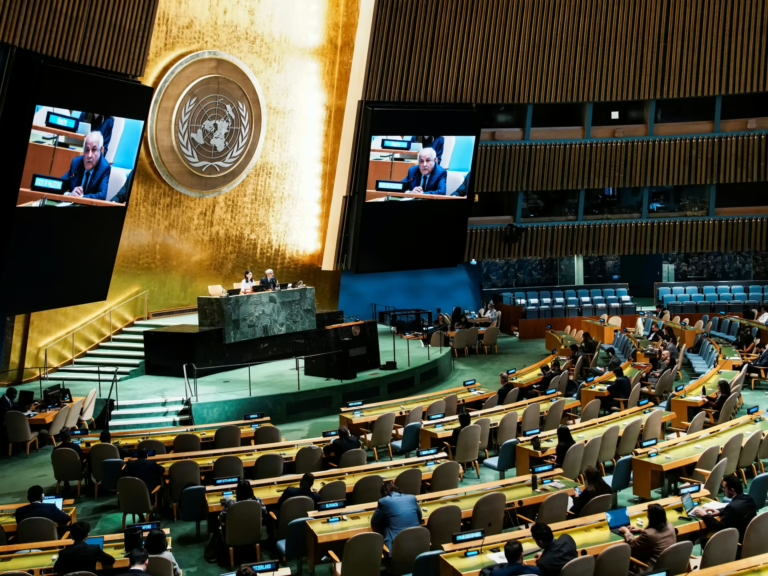Recognition of a Palestinian state has expanded significantly, with 157 nations now acknowledging its sovereignty, including key Western countries such as France, the United Kingdom, Australia, and Canada.
Notably, some of these recent recognitions come from countries traditionally allied with Israel, framing their support as a means to preserve the vision of a two-state solution-envisioning an independent Palestine coexisting alongside Israel.
UK Prime Minister Keir Starmer emphasized this perspective, stating, “Amid escalating turmoil in the Middle East, our actions aim to sustain hope for peace and a two-state resolution. This entails a secure Israel alongside a viable Palestinian state-neither of which currently exists.”
Despite the diplomatic milestone that recognition represents, it has yet to translate into tangible progress toward Palestinian statehood on the ground.
Throughout the ongoing conflict in Gaza, Israel has intensified settlement expansion in the occupied West Bank. Following the recent Palestinian recognition at the United Nations General Assembly, Israel reaffirmed its stance against the establishment of a Palestinian state.
This raises the question: does international recognition truly advance Palestine’s statehood ambitions, and what criteria must a territory meet to be considered a sovereign state? Let’s explore these issues in detail.
What Defines a State?
While there is no universally accepted definition of a state, international law often refers to the Montevideo Convention of 1933, which the United Nations has cited in discussions about Palestinian statehood.
The convention outlines four essential criteria: a defined territory, a permanent population, a functioning government, and the capacity to engage in diplomatic relations with other states. Importantly, formal recognition by other countries is not a prerequisite under this framework.
Can Palestine Qualify as a State?
Many countries that recognize Palestine generally accept borders approximating those before the 1967 Six-Day War, encompassing Gaza, the West Bank, and East Jerusalem.
Since 1967, Israel has maintained control over these territories, a situation widely regarded as illegal under international law.
The Oslo Accords of the 1990s initiated a process aimed at Palestinian state formation and established the Palestinian Authority (PA) to govern parts of the West Bank and Gaza.
The PA conducts foreign relations, maintaining diplomatic missions worldwide, including embassies and representative offices.
Regarding population, millions of Palestinians have resided in these areas for generations, despite ongoing Israeli policies and restrictions.
However, the extent of the PA’s autonomy is contested. While it performs some governmental functions, international organizations have questioned its full sovereignty due to Israeli control over borders, movement, and security.
For instance, the UN Secretariat in 2011 and the International Criminal Court in 2020 acknowledged that although Palestine meets most Montevideo criteria, Israel’s control over key aspects such as borders, internal movement, resources, and security operations significantly limits the PA’s governing capacity.
Why Has Palestine Not Achieved Statehood?
International law alone cannot resolve the complex realities on the ground.
Since establishing its first West Bank settlement, Kfar Etzion, after the 1967 war, Israel has built over 160 settlements in Palestinian territories and East Jerusalem, housing approximately 700,000 Israeli settlers. These settlements are considered illegal under international law.
During the recent Gaza conflict, settlement construction has accelerated. Israel’s plan to add roughly 3,400 new homes in the West Bank would fragment Palestinian lands and connect existing settlements via roads exclusively for Israeli use, severely undermining the feasibility of a contiguous Palestinian state.
Moreover, Israel has developed industrial zones like the Barkan Industrial Park within occupied territories.
These industrial parks attract Israeli and international companies by offering government incentives such as subsidies, reduced rents, favorable tax conditions, and access to inexpensive Palestinian labor, thereby bolstering the settlements’ economies.
According to Amnesty International, global corporations including Airbnb, Expedia, and JCB are among those involved.

Is Israel Likely to Relinquish Its Settlements?
The prospect appears remote.
Many settlers and their political backers view their presence in Palestinian lands as a religious imperative, citing Jewish scriptures as justification.
They claim a “divine right” not only to settle Gaza but also to reclaim the West Bank-referred to by them as Judea and Samaria-and even to expand Israel’s borders to create a “Greater Israel” encompassing parts of neighboring countries such as Lebanon, Syria, Jordan, and Egypt.
Settlers have increasingly taken aggressive actions to seize Palestinian land, often with minimal resistance from Israeli authorities. This agenda enjoys explicit support from Prime Minister Benjamin Netanyahu’s Likud party.
Several prominent settler leaders hold key government positions, including Finance Minister Bezalel Smotrich and National Security Minister Itamar Ben-Gvir.

What Role Does International Law Play?
Despite numerous violations, Israel, strongly supported by the United States, has largely disregarded international legal standards from the mass displacement of Palestinians in 1948 to current policies.
Rather than acknowledging Palestinian statehood, the Israeli Knesset controversially voted in July to annex significant portions of the West Bank, contravening international law.
In response to recent recognitions by the UK, France, Australia, and others, Prime Minister Netanyahu unequivocally declared, “It will not happen. There will be no Palestinian state west of the Jordan [River].”























